Filter by

The Politics of Bad Options Why the Eurozone's Problems Have Been So Hard to…
Why did the Eurozone crisis prove to be so difficult to resolve? Why was it resolved in a manner in which some countries bore a much larger share of the pain than other countries? Why did no country leave the Eurozone rather than implement unprecedented austerity? Who supported and who opposed the different policy options in the crisis domestically, and how did the distributive struggles among …
- Edition
- -
- ISBN/ISSN
- 9780198857013
- Collation
- -
- Series Title
- -
- Call Number
- -
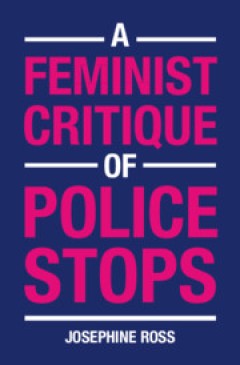
A Feminist Critique of Police Stops
A Feminist Critique of Police Stops examines the parallels between stop-and-frisk policing and sexual harassment. An expert whose writing, teaching and community outreach centers on the Constitution's limits on police power, Howard Law Professor Josephine Ross, argues that our constitutional rights are a mirage. In reality, we can't say no when police seek to question or search us. Building on …
- Edition
- -
- ISBN/ISSN
- 9781108697477
- Collation
- -
- Series Title
- -
- Call Number
- -
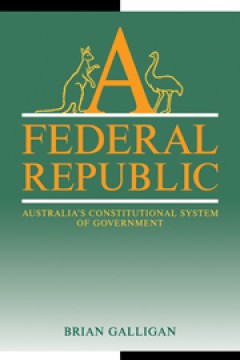
A Federal Republic Australia's Constitutional System of Government
This provocative book, first published in 1995, argues that Australia is already a federal republic rather than a constitutional monarchy. It argues that by adopting a federal constitution in 1901 Australians ensured their status as a sovereign people. While the book does not deny the parliamentary and monarchic elements of the Australian system, it calls for a positive reassessment of the Cons…
- Edition
- -
- ISBN/ISSN
- 9781139084932
- Collation
- -
- Series Title
- Reshaping Australian Institutions
- Call Number
- -
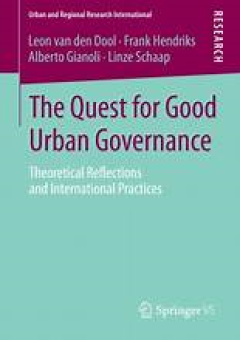
The Quest for Good Urban Governance
This book demonstrates both successes and failures in attempts to get closer to the ideal of good urban governance in cities in North-America, Europe, and Asia. It presents a value menu and deliberately does not come up with “one best way” for improving urban governance. Good urban governance is presented as a balancing act, an interplay between government, business and civil society in whi…
- Edition
- 1
- ISBN/ISSN
- 978-3-658-10079-7
- Collation
- X, 242, 9 b/w illustrations
- Series Title
- Urban and Regional Research International
- Call Number
- -

A Farewell to Fragmentation Reassertion and Convergence in International Law
Fragmentation has been much discussed as a threat to international law as a legal system. This book contends that the fragmentation of international law is far exceeded by its convergence, as international bodies find ways to account for each other and the interactions of emerging sub-fields. Reasserting its role as the 'principal judicial organ of the United Nations', the International Court o…
- Edition
- -
- ISBN/ISSN
- 9781139979498
- Collation
- -
- Series Title
- Studies on International Courts and Tribunals
- Call Number
- -

The Politics, Practices, and Possibilities of Migrant Children Schools in Con…
This book examines the dynamics surrounding the education of children in the unofficial schools in China’s urban migrant communities. This ethnographic study focuses on both the complex structural factors impacting the education of children attending unofficial migrant children schools and the personal experiences of individuals working within these communities. As the book illustrates in car…
- Edition
- 1
- ISBN/ISSN
- 978-1-137-50900-0
- Collation
- XVII, 185
- Series Title
- Palgrave Studies on Chinese Education in a Global Perspective
- Call Number
- -
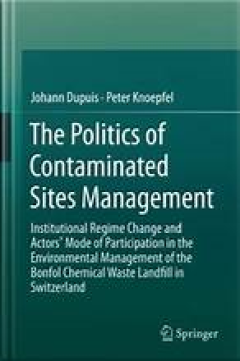
The Politics of Contaminated Sites Management
By the end of the 1970s, contaminated sites had emerged as one of the most complex and urgent environmental issues affecting industrialized countries. The authors show that small and prosperous Switzerland is no exception to the pervasive problem of sites contamination, the legacy of past practices in waste management having left some 38,000 contaminated sites throughout the country. This book …
- Edition
- 1
- ISBN/ISSN
- 978-3-319-11307-4
- Collation
- XIX, 159, 20 b/w illustrations, 8 illustrations in colour
- Series Title
- -
- Call Number
- -
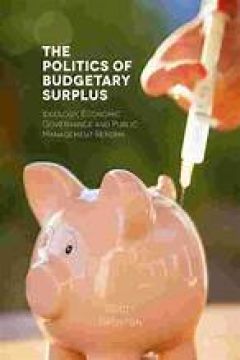
The Politics of Budgetary Surplus
This book probes the hollow rhetoric of debt, deficits and austerity. It explores the decisions of parties of the left which have attempted to deflect criticisms of economic mismanagement and gain trust by depoliticising the budget process and financial management with various rules, albeit with elements of discretion. The book argues that this is a perverse form of trust as it is premised on t…
- Edition
- 1
- ISBN/ISSN
- 978-1-137-58597-4
- Collation
- XV, 187
- Series Title
- -
- Call Number
- -

A Divided Republic Nation, State and Citizenship in Contemporary France
This book is an original and sophisticated historical interpretation of contemporary French political culture. Until now, there have been few attempts to understand the political consequences of the profound geopolitical, intellectual and economic changes that France has undergone since the 1970s. However, Emile Chabal's detailed study shows how passionate debates over citizenship, immigration,…
- Edition
- -
- ISBN/ISSN
- 9781107447936
- Collation
- -
- Series Title
- -
- Call Number
- -
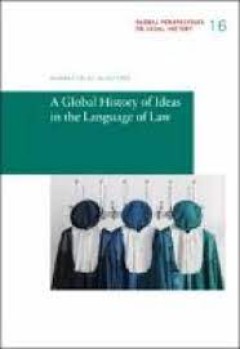
A Global History of Ideas in the Language of Law
This book argues that the narrowing focus of the global history of ideas on narratives in historical research, philosophy and political theory neglects the fact that the central concepts of the history of political ideas are articulated in the language of law. Key figures of the history of ideas, like Kant, Hegel and Weber, engaged deeply with the philosophy and sociology of law. This monograph…
- Edition
- -
- ISBN/ISSN
- 9783944773315
- Collation
- -
- Series Title
- -
- Call Number
- -
 Computer Science, Information & General Works
Computer Science, Information & General Works  Philosophy & Psychology
Philosophy & Psychology  Religion
Religion  Social Sciences
Social Sciences  Language
Language  Pure Science
Pure Science  Applied Sciences
Applied Sciences  Art & Recreation
Art & Recreation  Literature
Literature  History & Geography
History & Geography